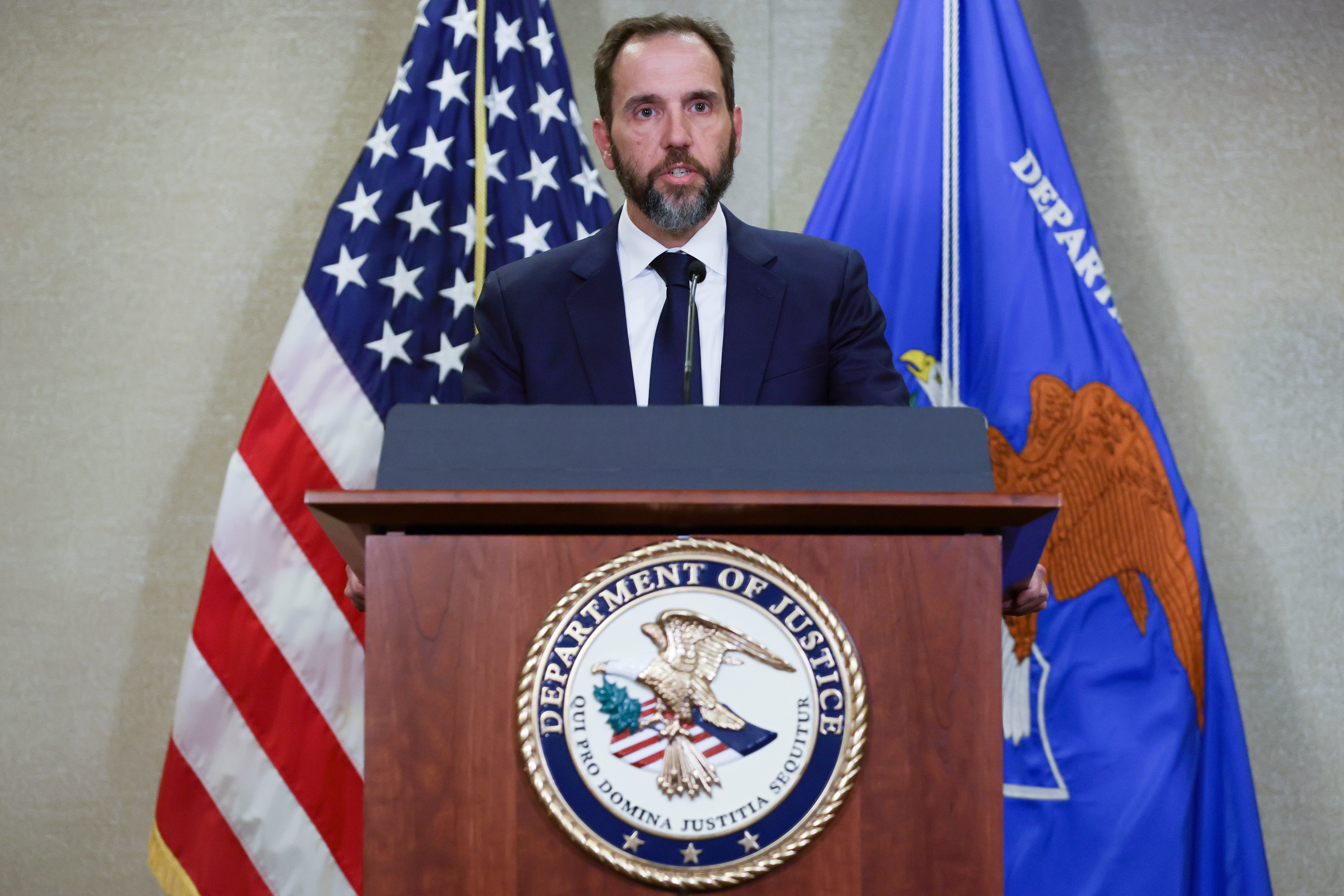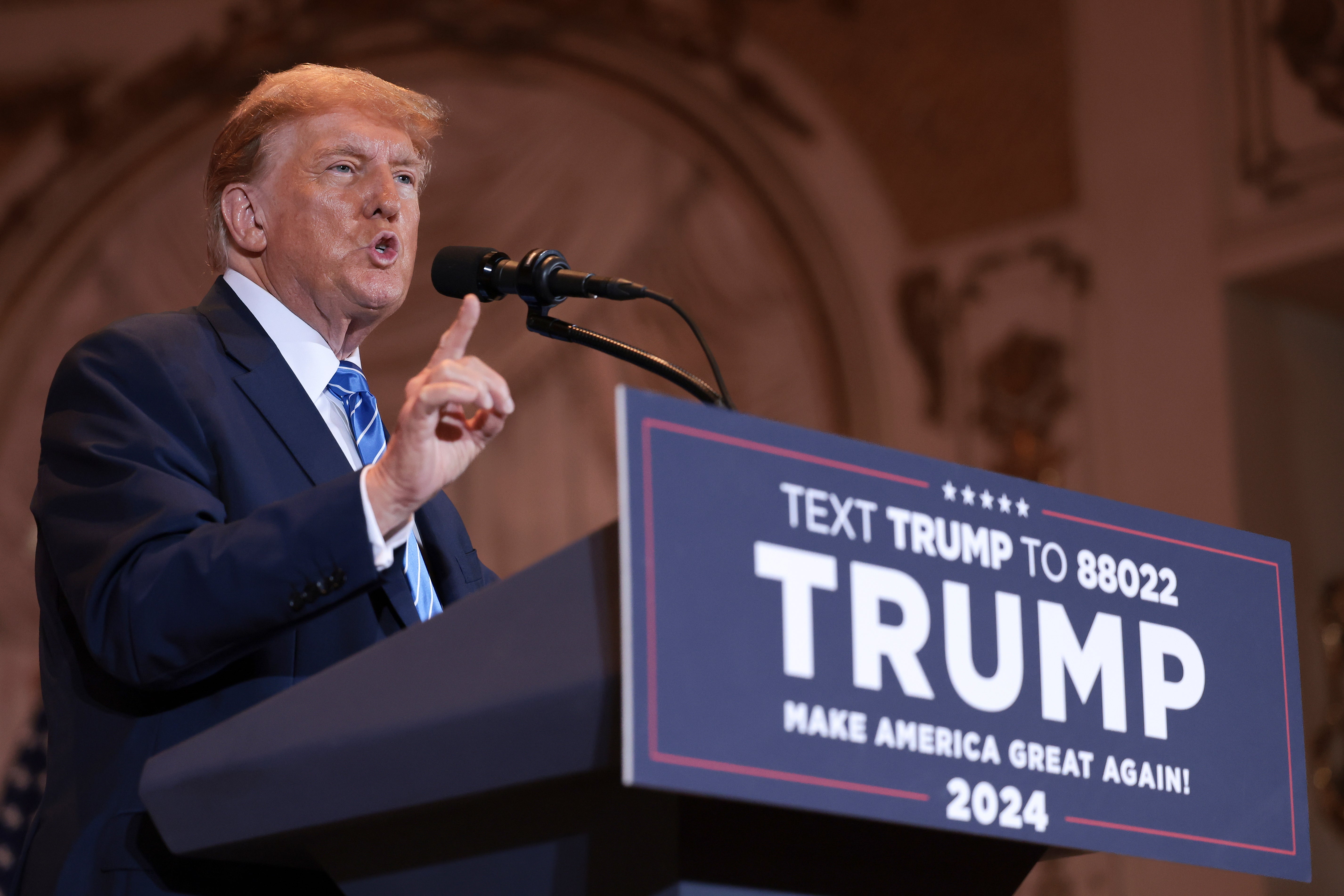Supreme Court sets date to hear Donald Trump’s immunity case
The highly-anticipated case will determine if and when the former president goes to trial in Washington, DC for charges related to attempts to overturn the 2020 presidential election
Your support helps us to tell the story
From reproductive rights to climate change to Big Tech, The Independent is on the ground when the story is developing. Whether it's investigating the financials of Elon Musk's pro-Trump PAC or producing our latest documentary, 'The A Word', which shines a light on the American women fighting for reproductive rights, we know how important it is to parse out the facts from the messaging.
At such a critical moment in US history, we need reporters on the ground. Your donation allows us to keep sending journalists to speak to both sides of the story.
The Independent is trusted by Americans across the entire political spectrum. And unlike many other quality news outlets, we choose not to lock Americans out of our reporting and analysis with paywalls. We believe quality journalism should be available to everyone, paid for by those who can afford it.
Your support makes all the difference.The Supreme Court of the United States has announced that oral arguments in Donald Trump’s presidential immunity case will take place on 25 April.
Last week, the Supreme Court agreed to hear the case from Mr Trump after lower courts rejected his presidential immunity defence from criminal charges related to his alleged attempts to overturn the results of the 2020 presidential election.
The arguments will take place on the last day of the court’s calendar. The court’s ruling is highly anticipated after the election conspiracy case, prosecuted by special counsel Jack Smith in Washington, DC, essentially came to a halt when Mr Trump came forward with his defence.

In a filing submitted to the high court on Wednesday, Mr Smith emphasised the need for a prompt trial ahead of the 2024 presidential election, saying a delay “threatens to frustrate the public interest in a speedy and fair verdict.”
The special counsel said the case poses a “unique national importance” since it involves Mr Trump, who is the unofficial presumptive Republican nominee for the 2024 presidential election.
So far, Mr Trump’s defence has been shot down at both the appeals court and by the federal judge overseeing the case. Last month, appeals court judges wrote that “citizen Trump” is not shielded by executive immunity, and that his “alleged efforts to remain in power despite losing the 2020 election were, if proven, an unprecedented assault on the structure of our government.”

This announcement comes after Mr Trump’s legal team argued in front of the Supreme Court for a separate case, one that challenges a Colorado court ruling that disqualified him from 2024 state ballots under the insurrection clause of the US Constitution.
The Supreme Court issued a decision this week in his favour, ruling that only Congress — not the states — has the authority to remove him from the ballot. Notably, the Court did not comment on whether Mr Trump participated in an insurrection.
The decision was unanimous. However, Justice Amy Coney Barrett joined the court’s liberal justices in arguing that the conservative majority overexpanded their reasoning for the ruling.

Join our commenting forum
Join thought-provoking conversations, follow other Independent readers and see their replies
Comments